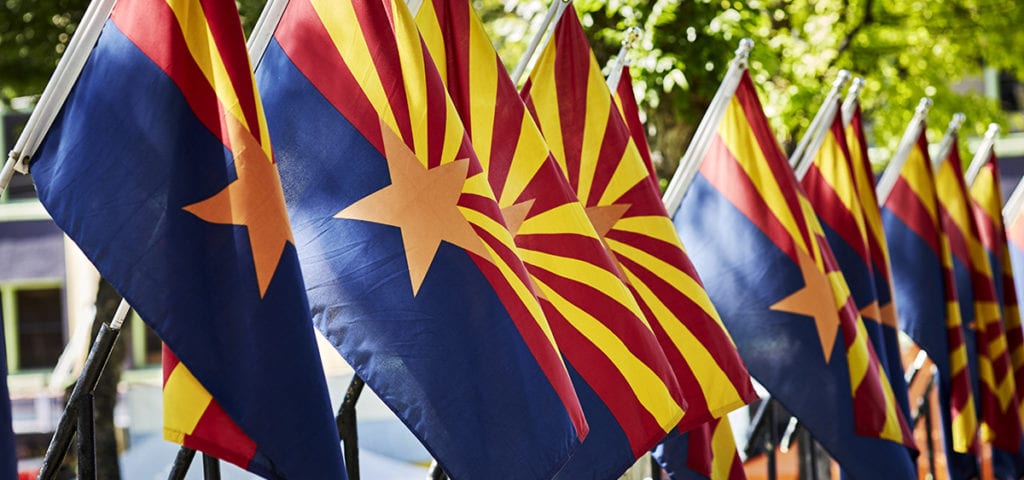Arizona’s ballot initiative to legalize adult-use cannabis has survived a legal challenge by opponents and is expected to move forward to the official signature verification stage.
Arizona Legalization Initiative Survives Legal Challenge

Arizona State flags hanging in a row with shallow depth of field
Full story continued below.
Advertisement
The cannabis legalization ballot initiative in Arizona has survived a legal challenge after a Superior Court judge ruled that the provisions included in the ballot summary language relayed enough information for voters who signed the petitions, the Mohave Daily News reports.
Anti-cannabis activists led by Arizonans for Health and Public Safety argued that the 100-word summary of the petition did not tell voters the reforms would allow more potent forms of cannabis – such as concentrates – changes state driving under the influence laws, and doesn’t specifically say that the proposed 16 percent tax on sales can’t be increased by the Legislature.
Superior Court Judge James D. Smith wrote in his decision that the principal provisions of the Smart and Safe Arizona Act were included in the summary and said that it took the anti-cannabis group 25 pages to outline what had not been included in the 100-word summary of the petition.
“Addressing legalizing a previously illegal substance must account for laws touching many parts of life. But if everything in an initiative is a principal provision, then nothing is.” – Smith in the ruling via Mohave Daily News
Last month the initiative campaign submitted 420,000 petition signatures to put the question on November ballots.
The ruling is likely to be appealed to the state Supreme Court and the petition signatures still need to be verified by the Secretary of State to ensure they all qualify. Republican Gov. Doug Ducey, in a statement of opposition last week, called the reforms “a bad idea based on false promises.”
If approved, individuals 21-and-older would be allowed to make legal purchases and possess up to 1 ounce. The 16 percent excise tax would be implemented, along with regular sales taxes. Industry-derived taxes would be mostly directed toward public safety and community colleges. Edibles would be permitted but THC in edible products would be capped at 10 milligrams.
In 2016 52 percent of voters rejected legalizing cannabis in the state.
Get daily news insights in your inbox. Subscribe
End
